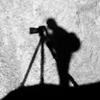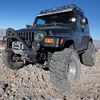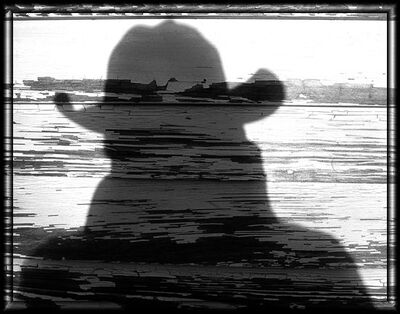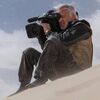What RAW won't help!
Feb 11, 2016 15:43:58 #
White balance? with JEPG you can take a reading off a gray card or white background and get the color as it is. With RAW you go home and play with it so it is what you want it to be but not what it is. You have to remember what it looked like and not may can do that. How many shades of Grey? - Dave
Feb 11, 2016 16:32:55 #
wilsondl2 wrote:
White balance? with JEPG you can take a reading off a gray card or white background and get the color as it is. With RAW you go home and play with it so it is what you want it to be but not what it is. You have to remember what it looked like and not may can do that. How many shades of Grey? - Dave
You can just as easily do a custom white balance shooting RAW, and then you know it is right so you don't have to play around with it in post. (Although I do often tweak it a bit, usually to warm up skin tones a bit.)
Feb 11, 2016 16:56:02 #
wteffey wrote:
I shoot a lot of RAW images. I'm not a RAW fanati... (show quote)
wt, I'm gonna disagree, but not for the reasons you mention. I've been preaching this for a while now, and maybe it's just optimistic thinking but I'll give myself the benefit of the doubt.
I say shoot raw and use the best IQ you can afford, however little of much that is.
You are correct that using today's technology not much can be done about things like focus issues etc. But how are we to know what technology has NOT been invented yet?? In ten years time, who knows what the reconstruction algorithms in the PP programs will bring. One thing I can say for sure is that the more information your files contain, the more the future PP programs may be able to reconstruct or correct.
I always want to error on the side of caution. I can always make a Raw file into a Jpeg but for sure will never be able to make a JPEG into a Raw file!! ;-)
SS
Feb 11, 2016 20:21:17 #
You must understand that when you begin to edit with a pixel editing program such as Photoshop you begin to lose pixels. So if you start with more pixels (raw) then you have more to lose without degrading the image. Also, when shooting raw, if you make a mistake on your exposure, you are more likely to have a better result in post on the raw verses a jpg image. For instance, I was shooting raw and had my camera in M (manual exposure) I was in a park and shooting birds in the bright sun. I began to walk through the park when a Summer Tanager flew to a tree that was shaded. I forgot to change my settings and got about 10 images that were 3 stops underexposed. I was able to save those images because I shot in raw. I took one of the images that was 3 stops underexposed and saved it as a jpg. Then I tried to edit the image in LR and I couldn't get it to look as good or display the detail I could with the original raw image that was also 3 stops underexposed.
wteffey wrote:
I shoot a lot of RAW images. I'm not a RAW fanati... (show quote)
Feb 11, 2016 20:28:24 #
jeep_daddy wrote:
You must understand that when you begin to edit with a pixel editing program such as Photoshop you begin to lose pixels. So if you start with more pixels (raw) then you have more to lose without degrading the image.
How does a raw image have more pixels? I'm not disputing it, but never heard or read that anywhere before this.
--
Feb 12, 2016 05:39:26 #
wteffey wrote:
Ah, good to know. Next time I need a really good photo of a black wall I'll make sure to use RAW.
:thumbup: :thumbup: :thumbup:
Feb 12, 2016 05:56:22 #
wteffey wrote:
I shoot a lot of RAW images. I'm not a RAW fanati... (show quote)
In practice you need both. But I never edit a jpeg - I am rarely happy with the results. I start with a raw image, make the parametric adjustments that would ordinarily be made by the camera if I were recording jpegs, then I export a 16 bit Prophoto image to a pixel editor which is capable of editing 16 bit images - like Photoshop, and not Photoshop Elements. There is where I do all the layers, masks, local contrast, tone, color and white balance adjustments, and leave all the "stuff" in place. When I need a jpeg, I export it from the working file. This way I preserve as much image information as possible throughout the editing process. If you start by editing jpegs, you begin with a small compressed version of the original image with lower accuracy (bit depth) and a smaller color space (usually sRGB, though jpeg does support Adobe RGB, sorta). So in a "constrained" editing scenario editing jpegs usually results in lower quality than what you could have done had you started out with a raw file to begin with. On some images the difference can be quite subtle, but on other images it is pretty dramatic.
Regardless, the things that raw won't help won't be better if you work with just jpegs. I do agree that limiting yourself to just what you can do in raw is going to give you less desirable results.
to provide a little bit of context, it is helpful to compare it to shooting film. Snapping the shutter in the camera and recording a raw file is like creating a latent (undeveloped) image on film. Processing the raw image to a psd or tiff file is like developing a negative, and creating a finished jpeg is like creating a print. Creating a raw file after you have adjusted it - before running it through a pixel editor - and creating a jpeg from that is like a contact print. It has none of the dodging and burning and other enhancements that is needed to "finish" the image.
Feb 12, 2016 05:58:37 #
The fact is this: raws give you wider latitude because they contain a huge amount more of data that is stripped from the file in a jpg. Whatever you can do with a jpg you can do better with a raw. Full stop.
It takes me about 10 seconds to make a jpg after opening a raw in Photoshop. Actually less because I have it set as an action. I can also automatically batch process all my raws in DxO, and optimize them automatically. I get to keep the raws for "artistic" work, or for exxxtreme corrections, and a set of optimized jpgs too. Best of both worlds IMO. I stopped shooting raw+jpg years ago and have never looked back.
It takes me about 10 seconds to make a jpg after opening a raw in Photoshop. Actually less because I have it set as an action. I can also automatically batch process all my raws in DxO, and optimize them automatically. I get to keep the raws for "artistic" work, or for exxxtreme corrections, and a set of optimized jpgs too. Best of both worlds IMO. I stopped shooting raw+jpg years ago and have never looked back.
Feb 12, 2016 06:04:54 #
wteffey wrote:
I shoot a lot of RAW images. I'm not a RAW fanati... (show quote)
Bunkum, besides serious post-processing in not carried out in Elements!
Feb 12, 2016 06:08:48 #
I can only tell you from a Nikon user's point of view. The skin tones and beauty of the scene are perfect right off the camera as a jpg if your exposure is on. I can set it for more saturation, sharpness, contrast - whatever I feel I need and I get something more than just acceptable. However, instances with a black girl, wearing white, in the sun (an actual instance I had at an outdoor wedding) needs a RAW file to work with if you want all the details to show in her face and the intricate designs in her dress. That was with a Nikon D200 which has nowhere near the range of the D700 or D750 I now use. I've also noticed that the almost fluorescent jersey's some of the sports teams I shoot come out a lot better from a RAW file (shot under extreme dim lights of night football or in an old gym). I'm in my 5th decade of shooting and am still wedded to the zone system.
Feb 12, 2016 06:10:41 #
Rongnongno wrote:
Uh? br I agree with most of it (like getting it ri... (show quote)
I didn't know you could spot heal etc. .. a raw photograph. I have Photoshop Elements 14, I'm going to have to look into that, thanks.
Feb 12, 2016 06:43:15 #
RWR
Loc: La Mesa, CA
wteffey wrote:
I shoot a lot of RAW images. I'm not a RAW fanati... (show quote)
I shoot RAW, and export as 16 bit TIFF. I do no editing of RAW files. What am I losing by not shooting 8 bit JPEG?
Feb 12, 2016 06:50:29 #
wteffey wrote:
...but be prepared to learn and employ JPEG processing too.
I see JPEG processing as working on a scale of 0 - 50, and raw processing as going from 0 - 100. A raw file gives me a better chance to get it the way I want it.
Feb 12, 2016 06:50:40 #
Grand
Loc: Lebanon, Pa
wteffey wrote:
I shoot a lot of RAW images. I'm not a RAW fanati... (show quote)
I don't have time for raw...get it right the first time, n u won't need raw.
Feb 12, 2016 06:53:05 #
wteffey wrote:
I shoot a lot of RAW images. I'm not a RAW fanati... (show quote)
I'll echo Rong..... Uh???
It might help if you view RAW as the unprocessed film. ACR is the film developer. PS/LR/E as the enlarger making your print. jpg is your final print.
Ultimately, it's the original exposure that sets the stage for the success or failure of the print.
--Bob
If you want to reply, then register here. Registration is free and your account is created instantly, so you can post right away.










